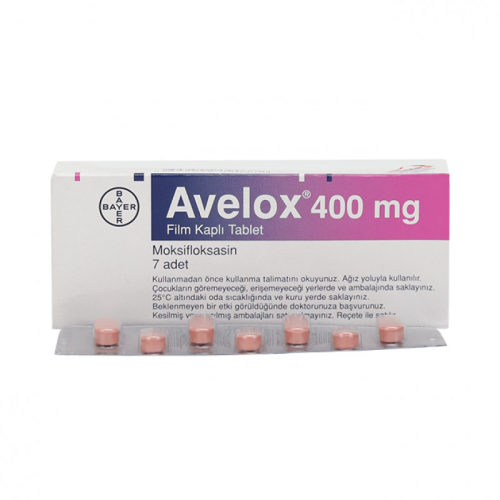CLASSIFICATION
DNA gyrase inhibitor, topoisomerase IV inhibitor
ACNE
No
WATER RETENTION
No
HBR
No
HEPATOTOXICITY
No
AROMATIZATION
No
MANUFACTURER
Bayer
WAREHOUSE
International Warehouse 2
SUBSTANCE
Moxifloxacin
,
Avelox (moxifloxacin) is an antibiotic belonging to the fluoroquinolone class, which works against bacteria in the body. Avelox is utilized to treat various bacterial infections affecting the skin, sinuses, lungs, or stomach. It is indicated for conditions such as community-acquired pneumonia, plague, bacterial sinusitis, and chronic bronchitis with a bacterial infection. Fluoroquinolone antibiotics can lead to serious or disabling side effects, which may not be reversible. Avelox should only be prescribed for infections that cannot be addressed with a safer antibiotic. If you have a muscle disorder, you may not be able to take Avelox. Inform your doctor if you have a history of myasthenia gravis. Moxifloxacin can result in severe side effects, including issues with tendons, nerve damage, significant mood or behavioral changes, or low blood sugar levels. Discontinue use and contact your doctor immediately if you experience symptoms such as headache, hunger, irritability, numbness, tingling, burning sensations, confusion, agitation, paranoia, memory or concentration issues, suicidal thoughts, or sudden joint pain or movement difficulties. In rare instances, moxifloxacin could cause damage to your aorta, which may result in life-threatening bleeding. Seek emergency medical assistance if you experience severe, persistent pain in your chest, stomach, or back. Avelox may lead to tendon swelling or rupture. If you notice sudden pain, swelling, bruising, tenderness, stiffness, or trouble moving any of your joints, stop taking moxifloxacin and contact your doctor immediately. You should avoid taking Avelox if you are allergic to moxifloxacin or any other fluoroquinolones (such as ciprofloxacin, gemifloxacin, levofloxacin, ofloxacin, norfloxacin, etc.). Avelox may increase the risk of tendon swelling or tears, particularly in the Achilles tendon of the heel. This side effect can occur during treatment or several months after discontinuation. Tendon issues are more likely in those over 60, those taking steroid medications, or those who have undergone a kidney, heart, or lung transplant. To determine if Avelox is safe for you, inform your doctor if you have a history of: - Tendon, bone, arthritis, or joint problems; - Circulatory issues, aneurysms, or arterial narrowing/hardening; - Heart conditions or high blood pressure; - Genetic disorders like Marfan syndrome or Ehlers-Danlos syndrome; - Diabetes; - Muscle or nerve disorders such as myasthenia gravis; - Liver or kidney diseases; - Seizures or epilepsy; - Head injuries or brain tumors; - Long QT syndrome (in yourself or a family member); or - Low potassium levels in your blood (hypokalemia). Avelox is not approved for individuals under 18 years old. The effects of this medication on unborn babies are not fully known, so inform your doctor if you are pregnant. Additionally, you should not breastfeed while taking this medication. Follow your doctor’s instructions and take Avelox exactly as prescribed. Adhere to all directions provided on your prescription label and read any accompanying medication guides. Take Avelox with water and ensure you drink plenty of fluids to help maintain proper kidney function. You can take this medication with or without food, but do so at the same time each day. Continue using this medication for the entire prescribed duration, even if you start to feel better soon. Skipping doses could increase your risk of developing antibiotic-resistant infections. Note that moxifloxacin is ineffective against viral infections such as the flu or the common cold. Do not share Avelox with others. Store at room temperature, away from moisture and heat.
What is Avelox?Important Information
Before Taking This Medication
How to Take Avelox

